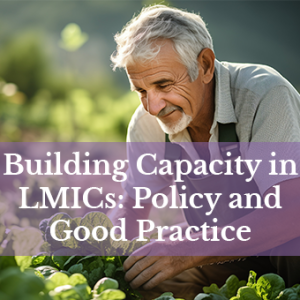
Bridging the Research-Policy Gap: Partnership to Support Primary Health Care Reform in Jamaica
Presenter(s):
Denise Eldemire-Shearer; Douladel Willie-Tyndale; Kemisha Shaw-Kelly; Annazika Watkins, The University of the West Indies, Jamaica
Abstract
Jamaica’s health system has evolved significantly since its early organization in the 1860s. Despite boasting a widely accessible primary health care system, additional reform was recognized as needed to respond appropriately to the demographic and epidemiological shifts that have occurred over the decades.
This paper describes the partnership between Mona Ageing and Wellness Centre (MAWC) from The University of the West Indies (UWI) (an academic and advocacy organization) and the Family Health Unit within the Ministry of Health and Wellness, Jamaica (MOHW). In 2018, the MOHW took a policy decision to engage with primary health care reform and to establish a specific programme on the care of older adults, among other new initiatives.
MAWC has done extensive research and advocacy work with and for the 60 and over population. The Centre was engaged to partner with MOHW to provide data and technical support for the development of the new programmatic area on “elderly health”. MAWC conducted a situational analysis, which highlighted the chronic disease profile of the 60 and over population and the social determinants which could impact service delivery. A high level of functional independence among the 72% of older adults with a chronic disease was noted. MAWC team members participated in technical working groups and worked closely with the MOHW unit responsible for primary health care. Using the World Health Organization (WHO) Integrated Care Approach, the partners have designed the Primary Care Programme for Older Persons, leveraging existing resources and enhancing capacity, as needed.
The programme prioritizes health promotion, disease prevention, as well as maintenance and restoration of functionality. With a 60 and over population of just under 400,000 persons (in a country of 2.8 million) and a well-established primary health care system of 342 clinics across the island, the programme has the potential to identify the need for in-depth assessments of the older adults and to do the same within the primary health care system. The need to strengthen communication between primary and secondary care (hospitals) has also been identified as important for the success of the programme.
Partnerships between policymakers and academia are vital for progress in public health and are key strategies to putting countries on the path to building healthy, resilient, and sustainable futures.
Bio(s):
Douladel Willie-Tyndale, Doctor of Philosophy, Public Health, Post Graduate Diploma, Gerontology (Distinction), Master of Science, Epidemiology
Douladel Willie-Tyndale is a Senior Lecturer and the Director of Mona Ageing and Wellness Centre at
The University of the West Indies, Mona Campus. In addition to teaching courses in research
and gerontology, she coordinates the gerontology programmes offered at the Centre and
supervises students at the master’s and doctoral levels. Dr. Willie-Tyndale’s research interests include sexual and genitourinary health, social participation, ageing and relationships, and well-being in older persons.
